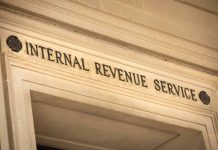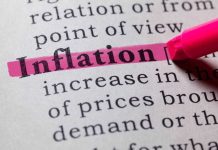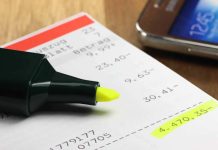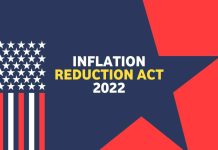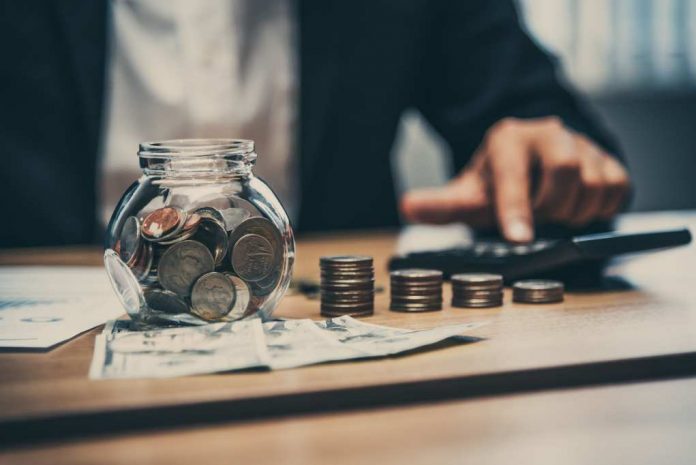
There are a few different ways that you can handle your bill payments. You can use your debit (or credit card), or use a check. It is important to find the way you want to handle your bills and learn better habits at managing your bills to work on gaining financial stability.
Using a Debit or Credit Card to Pay Your Bills
Many people struggle to properly handle their credit, even if they are trying to be responsible. One common way that people can misuse their credit is when it comes to their bills. Using your credit card to handle your bills provides the comfort of your bills being paid without impacting your bank account right away. Credit card companies even encourage their consumers to use credit cards by offering rewards, bonuses, and more! This can be a tempting option and it works well for many people, but there are some drawbacks you should be aware of before choosing this option.
Disadvantages of Using Your Credit Card
While a credit card may seem like a great option right away there are some aspects that you need to be aware of:
Drawback #1: Increased Debt or Additional Fees
If you opt to use your credit card to handle bills, you run the risk of going into debt. It could also be hard to manage your credit card repayment if you lack the discipline to keep track of it. You could just be increasing your credit card debt for no reason.
If you choose your debit card then you may face additional fees if your account gets overdrawn from a card payment. Other institutions may impose fees for card payments as well! That is why it is important to check what method would be best for each type of bill.
Drawback #2: Your Credit Score
When using a credit card for your bills, you also face hurting your credit score. If you lack the discipline to properly handle your credit card repayment then that increased utilization may negatively impact your score. You should aim to use no more than 30% of your card’s credit limit. This means if you find yourself using over 30% then you may want to avoid using your credit until you can keep that number consistently low. Make sure to pay down your card as soon as possible to get that utilization rate back where it belongs!
Advantages of Using Your Credit Card
Even though there are a couple drawbacks that you may face, there are also benefits to using a card to manage bills as well!
Benefit #1: Earn Rewards
Many financial institutions offer rewards to consumers for a variety of reasons. Many will offer cashback opportunities or points that can be accumulated over time. You can contact your financial institution to see what reward programs are available. If you find that you do not have a lot of reward opportunities, you may decide that it is time to switch banking institutions in order to get the most bang for your buck!
Benefit #2: Ease of Use
When you use cards to pay bills, you get to enjoy the luxury of an instant transaction. You don’t need to deal with the mail system, or wait for your check to clear. Your funds can just go towards the expense immediately. You can also choose to set up automatic payments with your card. This can’t be done if you choose to mail physical checks!
Not only is it super convenient to use a card, it also is easier to keep track of. When you make a payment with a card it is automatically put onto your statement. This statement is easily traceable and can typically be accessed at any point.
You will also be able to better manage your financial health overall. If you have numerous bills every month like housing costs, debts, non-essential expenses, etc., it can be hard to keep track of where your money is going. If you put all bills onto one card, you can easily see which account is taking care of your expenses.
Bills that Accept Credit Card Payments
Not every institution will allow a credit card to be used as a form of payment. While each one is unique, you can generally expect utility services, cable services, internet services, cell phone providers, and subscription services to allow credit cards. On the other hand, generally mortgage companies, home/auto/student lenders, insurance companies, and tax collectors don’t accept them. Regardless, make sure to check out the company you are interested in because they may allow it!
Using a Check to Pay Your Bills
Even though technology is constantly improving, many people like to stick to the old-fashioned way of paying their bills. This means handling their bill statements, and payments with paper. Many individuals have the common misconception that electronic payments aren’t secure, however paper checks aren’t better. It is important that you understand this bill payment option so that you can make a decision that is best for your lifestyle and budget.
What Exactly is a Personal Check?
Personal checks, also referred to as paper checks, are a paper form that financial institutions provide that can be used as a type of payment. Checks are able to pull money directly from the account that it is linked to (usually a checking account.) Checks must have the payee’s name and the amount receivable written on the check.
Are Personal Checks Safe?
You can generally consider checks to be safe. However paper checks could potentially disclose information about your:
- Bank Account Number
- Bank Routing Number
- Name
- Address
- Phone Number
- Name of Your Financial Institution
- Signature
These personal details are very important! You don’t want a thief to have access to this type of information. If you want to use a check, you should look into electronic checks as an alternative to the paper version. Electronic checks have protections under the Federal Reserve’s regulations on consumer rights and protection from errors and fraud. This protection makes it easier for consumers to handle the process of stolen funds compared to a paper check.
What is a Fraudulent Check?
You may have heard about check fraud before. Unfortunately, it is pretty common. In fact, millions of checks are forged every year and check fraud accounts for 35% of all bank fraud. There are plenty of types of check fraud like:
- Closed Account Fraud: This is when an individual will write checks on a closed account.
- Forgery: Individuals can either sign a check without authorization or endorse a check that is not actually payable to the payee.
- Theft: Some people steal and use checks, which makes them fraudulent.
- Check Removal: Some people have chemical technology to remove information from checks. This can provide a blank check with your information.
Can You Avoid Check Fraud?
There are some safety measures that you can take to do your part in handling good practices with your checks. Some things that you can do include:
- Proper Record Keeping of Your Checks
- Regular Bank Transaction Monitoring
- Make Sure to Store Checks in a Safe Spot
- Send Via Certified Mail
- Use Fraud-Resistant Pens
Advantages of Writing Checks
Even though it may seem like there are a lot of drawbacks to using a physical check, there are also some benefits to keep in mind. Benefits of checks are:
- They Can be Sent via Mail
- Easy to Use
- Cheaper than Money Orders
While these benefits may seem nice, they may not be enough to overshadow the drawbacks.
Disadvantages of Writing Checks
Not everyone may realize the type of drawbacks that are associated with writing a check. Some of these are the fact that:
- Not Every Company Will Accept a Personal Check
- You May Get Charged a Fee for Writing Too Many Checks
- There May Be Account Requirements for Checks
These drawbacks may be just enough to sway you to not use checks when it comes to paying your bills!
How to Organize Your Bills
Regardless of how you want to pay your bills, you should also put some effort into organizing your bills. Your monthly expenses can add up quickly. Before you know it, you may owe more money than you’re making! Some ways that you can organize your bills are:
- Get a Checklist Together
- Keep Track of Statements
- Create an Excel
- Get a Filing System Together
- Use Apps
Get a Checklist Together
You want to have a clear understanding of your bills, which is why a checklist can help. Listing all of your expenses and when they are due can provide some structure and the opportunity to plan for these payments. You may even benefit from structuring your checklist by the type of bill like credit bills, utility bills, miscellaneous expenses, etc.
Keep Track of Statements
Statements can help you understand what you are spending your money on. They may also be able to help during tax time if you try to get deductions! Either way, statements can be a very helpful tool for individuals that want to organize their bills. Keeping this documentation handy may make it easier to find your information like your account number or other personal details as well!
Create an Excel Spreadsheet
Some people like to organize their bills online with an excel spreadsheet. Excels are a great way to quickly see where your money is going, how much you can expect to spend, and when it is getting withdrawn from your account. Many people like to use excel because it is easy to share with other people (which can be helpful for families!).
Get a Filing System Together
There are plenty of ways that an individual can file their bills every month. Often, people will use filing cabinets, trapper keepers, and more to get a grip on their bills. Some people even scan the physical bills that they receive in the mail and upload them to their computer for better tracking. Either way, you will want to find a filing system that works for you.
Use Apps
Times are changing. That means technology is changing too, luckily for the better. As technology advances, so does the opportunity that consumers have in their day-to-day life. One opportunity is easier bill management using apps like Mint or SimplyWise. There are a variety of app options available besides these and each have their own unique functions. Make sure to try a few different options before deciding on which one you’ll stick with!
Should You Consider Automatic Payments?
Many people hear about automatic payment options when dealing with their bills. However, should that be something that you consider? Before you make a decision, it is important to keep in mind what automatic bill payments entail! Many people choose to automate their bill payments because they want to not worry about missing due dates, avoid late fees, and work on saving money. On the other hand, those that opt for this payment set up face overdrawn accounts, additional fees, and must regularly monitor their account to check for funds and withdrawals. Automatic bill payments are not a good fit for every individual but can drastically help bill management when used properly.
When Should You Enroll in Automatic Payments?
You need to look at your financial situation in order to determine whether or not you would benefit from automatic bill payments. If you find that you are always missing payment due dates, and have enough funds in your account then you would benefit from automatic payments. On the flipside, if you are someone that doesn’t have a lot of funds in their account then automatic payments may be more stressful than anything.
Overall
There are both advantages and disadvantages to different types of bill payments. That is why understanding your options, and properly handling your bills can make a world of difference. You will want to make a decision based on your financial situation as well as your lifestyle. Make sure to take your time when considering which bill payment system would be right for you.






